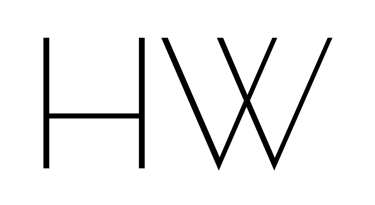Saxophone Performances

Sonata for alto saxophone and piano, Mvt I
Robert Muczynski (1929 - 2010)
Recorded Nov. 2024
Program Note
Muczynski was a Polish-American composer and pianist. The Muczynski Sonata was written in 1970 for saxophonist Trent Kynaston and was inspired by the Arizona desert where Muczynski lived. The piece is programmatic with the first movement portraying the desert at night. Muczynski was originally going to title his piece Desert Sketches but Kynaston convinced him to call it a sonata so that the piece would be taken more seriously.
Program Note
Rachmaninoff composed Vocalise, Op. 34, No. 14, in 1912. The piece is part of a collection of fourteen pieces but is the only one that does not have text. Vocalise is all about the performer's ability to be expressive without using words. It has been said that Rachmaninoff once told Antonia Nezhdanova, the soprano singer to which Vocalise was dedicated, “What need is there for words when you will be able to convey everything better and more expressively than anyone could with words by your voice and interpretation?”
Vocalise is the only piece out of the fourteen that Rachmaninoff revised three years after writing. Many believe that he revised the original work after experiencing the Great War and all of the mourning, loss, and death that comes with war. The idea that the piece is about death is strengthened by the fact that Dies Irae (Day of Wrath), an old Gregorian Chant, is used throughout Vocalise. Rachmaninoff quotes Dies Irae in the main melody which happens right at the beginning of the piece.

Vocalise
Sergei Rachmaninoff (1873 - 1943)
Recorded Nov. 2024

Recorded Sep. 2024
Etude No. 23
Franz Wilhelm Ferling (1796 - 1874)
Program Note
Ferling was a German oboist, composer, and clarinetist and is best known for his 48 etudes for oboe which are also studied by saxophonists. For two years, he was a military musician and played clarinet and then he played oboe for 44 years in the Brunswick court orchestra.

Recorded Sep. 2024
Etude No. 20
Franz Wilhelm Ferling (1796 - 1874)
Program Note
Ferling was a German oboist, composer, and clarinetist and is best known for his 48 etudes for oboe which are also studied by saxophonists. For two years, he was a military musician and played clarinet and then he played oboe for 44 years in the Brunswick court orchestra.

Recorded Sep. 2024
Pequeña Czarda
Pedro Iturralde (1929 - 2020)
Program Note
Spanish composer and saxophonist, Iturralde wrote Pequeña Czarda (Little Dance) in 1929. Iturralde is considered a pioneer of Spanish jazz music. The form of the piece is a “czarda” which is a Hungarian dance form.

Recorded Jan. 2024
Carnival of Venice
Jules Demersseman (1833 - 1866)
Program Note
The Carnival of Venice was written by Demersseman for one of Adolph Sax's students and is one of the first pieces written for the saxophone. Based on a Neapolitan folk tune, this work is designed to be a show piece, one that concludes a concert in a huge flourish. It's comical, operatic in a way, and made to entertain.

Recorded Oct. 2023
Concertino da Camera, mvt I
Jacques Ibert (1890 - 1962)
Program Note
A graduate of the Paris Conservatory, Ibert’s most popular work is Concertino da Camera. Written in 1935 for the German-American saxophonist Sigurd Rascher, Concertino da Camera consists of two movements. The first movement is known for its fun but challenging articulation, style, and altissimo run.

Recorded Oct. 2022
Concerto in Eb Major
Alexander Glazunov (1865 - 1936)
Program Note
Glazunov’s Concerto in Eb Major for alto saxophone and orchestra was premiered by Sigurd Rascher in Sweden in 1934. Glazunov wrote a saxophone concerto when the saxophone was relatively new and not accepted by many. However, Glazunov loved the saxophone and wrote the piece for Sigurd Rascher.
